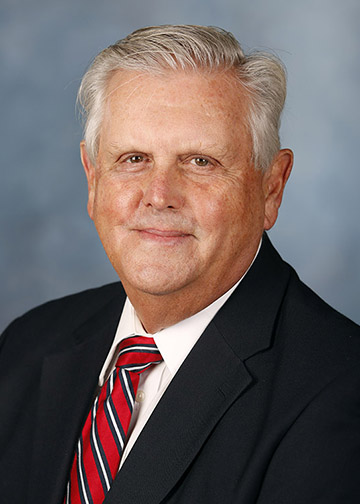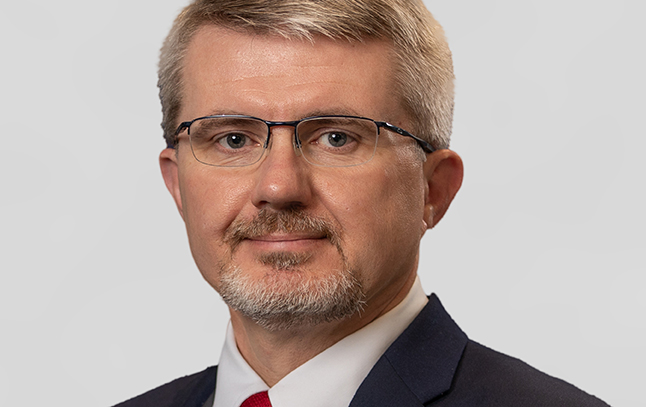
Education Commissioner Terry Holliday
It’s been about six months since Kentucky Department of Education (KDE) leadership and I met with all Kentucky school district superintendents in Frankfort for a face-to-face Superintendents’ Summit. This provided an opportunity for me to explain the why, what and how of the P-12 components of the Unbridled Learning: College and Career Readiness for All system. In addition, superintendents heard presentations on key topics and had the opportunity through roundtable discussions to share feedback on the issues. This detailed feedback was compiled into a document that included responses from KDE staff to each comment/question submitted by superintendents.
Since the summit, Kentucky Department of Education (KDE) staff has studied and integrated this feedback into our work in an effort to be responsive to the needs of school districts. The feedback has been extremely valuable and KDE is appreciative of superintendents’ willingness to share it with us.
Below is an update on the many ways the superintendent feedback has had a positive impact on KDE’s work.
Assessment and Accountability
• Accountability Model – KDE will do a three-year review of the components of the accountability system looking for areas for continuation and adjustments. By allowing three years of data to be part of the review, it will provide a more consistent look at the scores.
• State Tests – KDE issued a Request for Information (RFI) in November 2013 to begin exploring assessments to help with the issuing of a Response for Proposals (RFP) to replace the EXPLORE/PLAN tests at a minimum since the vendor is discontinuing them, but also possibly the high school end-of-course tests. KDE continues working with ACT to improve their current high school model and ACT has indicated that the turnaround times for paper tests this spring will be significantly shorter.
• Growth – Both at the summit and later, superintendents focused attention on the growth model. Due to this concern, the Growth Component will be one of the main components we will be taking a look at during review of the accountability model. The review will look at purpose, use and weights of the growth component.
• Program Reviews – KDE is launching major activities to help improve the Program Review model. Those activities include strengthening of the audit process, conducting research to determine the value and importance of Program Reviews, improving the scoring process, and reviewing and analyzing data to help inform future changes.
Professional Growth and Effectiveness System (PGES)
• Kentucky Board of Education (KBE) took up the first reading of the new regulation earlier this month. It comes back for a second reading and approval on April 9. In the interim, KDE is analyzing and considering all feedback on the regulation. Additionally, the KBE is holding a study session on the student growth component of the PGES model on April 8 prior to its board meeting.
• KDE has distributed the Model Certified Evaluation Plan (CEP).
• Regional trainings are taking place this month and next for district leadership teams to delve into the Model CEP.
• Educational cooperatives have been involved in this work and have been encouraged to share models of solid implementation from the statewide pilot of the system during their meetings.
• A closer look at time and funding to implement PGES is a part of the research agenda throughout the pilot.
• The Area Technology Centers/Career and Technical Education (ATC/CTE) pilot of PGES is currently underway and will expand during the upcoming academic school year.
• A subcommittee of the Steering Committee that has been guiding this work agreed on rubrics for “other professionals” in January. A pilot for the “other professionals” system will take place during the 2014-15 school year.
• Ongoing conversations between KDE and the Kentucky Education Association (KEA) have occurred to ensure local presidents are sharing a consistent message around the expectations for PGES.
Teacher PGES
• PGES consultants are providing greater support for all four domains.
• The Kentucky Teacher Internship Program (KTIP) and PGES will be merged. A pilot will be conducted in the 2014-15 academic school year with full implementation in 2015-16.
• The summative model for the teacher PGES has been shared publicly and with the KBE.
• Videos from teachers, principals, and superintendents will be shared in the coming weeks to provide information about the use of student growth in the system.
Principal PGES
• Questions about assistant principals and their role in the principal PGES have been addressed through PGES webcasts and newsletters.
• Great collaboration has occurred with the Education Professional Standards Board (EPSB) to ensure principal preparation programs are sharing the principal PGES as a part of the expectations for demonstrating effectiveness.
• Regional VAL-ED training has assisted with understanding of the tool.
• TELL KY survey data is used as a source of evidence for the creation of principal goals but focuses primarily on working conditions and the goal for continuous improvement.
• A greater partnership with the Kentucky Leadership Academy (KLA) has been formed to support the principal PGES and teacher PGES.
Additional Curricular Information
• Science leadership networks are underway across the regions. Teachers have been participating and involved in conversations about the standards and updating local curricula.
• Regional social studies leadership networks are meeting so teachers may examine the C3 Social Studies Framework and develop new standards for future implementation. The social studies standards will not be introduced until late in the fall of 2014 at the earliest
• World Language Program Reviews will be piloted in 2014-15 in order to continue to build innovative models for language and cultural programs.
Budget
• Based on the comments during the Superintendent’s Summit, KDE submitted a budget proposal to the Governor in November 2013 supporting the three priorities as agreed on by superintendents. These were restoration of funding for SEEK, Flexible Focus (textbooks, professional development, Extended School Services, school safety) and Technology.
• The Governor’s budget proposal supports all of these areas in some fashion and KDE continues to advocate for restoration of K-12 funding as the legislative session moves forward.
Flexibility of Federal Funds
• KDE will issue a white paper in March to assist districts in using federal funds effectively.
Career and Technical Education
• In response to requests to expand the career readiness measures, the Office of Career and Technical Education (OCTE) has developed an electronic form by which schools and districts can submit industry certifications for consideration. The form can be found on the KDE website at this link.
• In collaboration with the Office of Next-Generation Learners, OCTE has created workgroups to develop career pathways for the arts. Seven pathways and end-of-program assessments will be developed for students interested in the arts. Schools and districts will be able to implement the pathways during the 2014-15 school year.
Sharing Best Practices
• A “Best Practices” webpage now exists where districts can both submit best practices that have worked for them as well as access ideas from across the state. The webpage is currently undergoing a redesign to make it easier for users to submit and find best practices.
Technology
• KDE continues to assist district and school staff with any issues regarding roles and levels in the Continuous Instructional Improvement Technology System (CIITS) through monthly webcasts as well as through the CIITS Help Desk.
• KDE has been working with the SchoolNet development team on an issue with the Educator Development Suite (EDS) recognizing only the teacher of record. The solution will make it possible for all certified staff to have access to self-reflection, student growth goal setting, professional growth plans, and student voice results that are a part of PGES. We are hopeful this will occur within the next three months.
Finally, plans are underway to schedule a second Superintendents’ Summit in September of this year. The main topic for the summit would be reviewing the existing accountability model and making recommendations for possible changes in the model to the Kentucky Board of Education. After seeing the impact they can have, we hope all superintendents will once again take part.




Leave A Comment